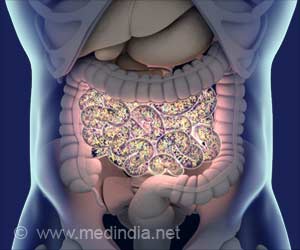Both processes are complex, dynamic and profoundly influenced by factors ranging from the types of foods consumed and when, to the microbial residents of the gut, whose presence and behaviors help dictate digestion, absorption of nutrients, vitamin synthesis and development of the immune system.
“It’s important to realize that the gut microbiome is constantly changing, not only based on what we’re eating, but also based on the time of day,” said senior study author Amir Zarrinpar, MD, PhD, assistant professor of medicine at UC San Diego School of Medicine and a gastroenterologist at UC San Diego Health.
Advertisement
“Most researchers are getting snapshots of this constantly shifting environment, which makes it hard to understand what is going on in the gut. With this study, we are trying to get multiple snapshots throughout the day, almost like a movie, to better understand how food and the microbiome interact to affect weight gain and diabetes.
“And what we’ve learned is that cyclical changes in the gut microbiome are quite important for health since they help with the circadian clock, and with that the regulation and control of glucose, cholesterol and fatty acids and overall metabolic health.”
The Gut Microbiome and Its Role in Obesity & Diabetes
In their latest work, Zarrinpar and colleagues further elucidate the impact and interplay of these factors, particularly in terms of the ileum and its unique functions related to digestion and absorption. Specifically, they looked at how diet-induced obesity (DIO) and time-restricted feeding (TRF) alter ileal microbiome composition and transcriptome (the protein-coding part of an organism’s genome) in mouse models.
The researchers found that in mouse models, DIO and the absence of TRF (mice could eat as much as they wanted whenever they wanted) resulted in disruptions to gut microbiome rhythms and the signaling pathways that help modulate intestinal clocks. In other words, the mice became fat and unhealthy.
“It is interesting that restricting food access with TRF acts not only through restoration of patterns affected under the unhealthy state, but also through new pathways,” said first author Ana Carolina Dantas Machado, PhD, a postdoctoral scholar in Zarrinpar’s lab.
“These findings underscore the influence of diet and time restricted feeding patterns in maintaining a healthy gut microbiome, which in turn modulates circadian rhythms that govern metabolic health,” said Zarrinpar. “It’s a very complicated relationship between the microbiome and the host, with the former helping determine the latter’s gastrointestinal functioning and health.”
Source: Eurekalert



